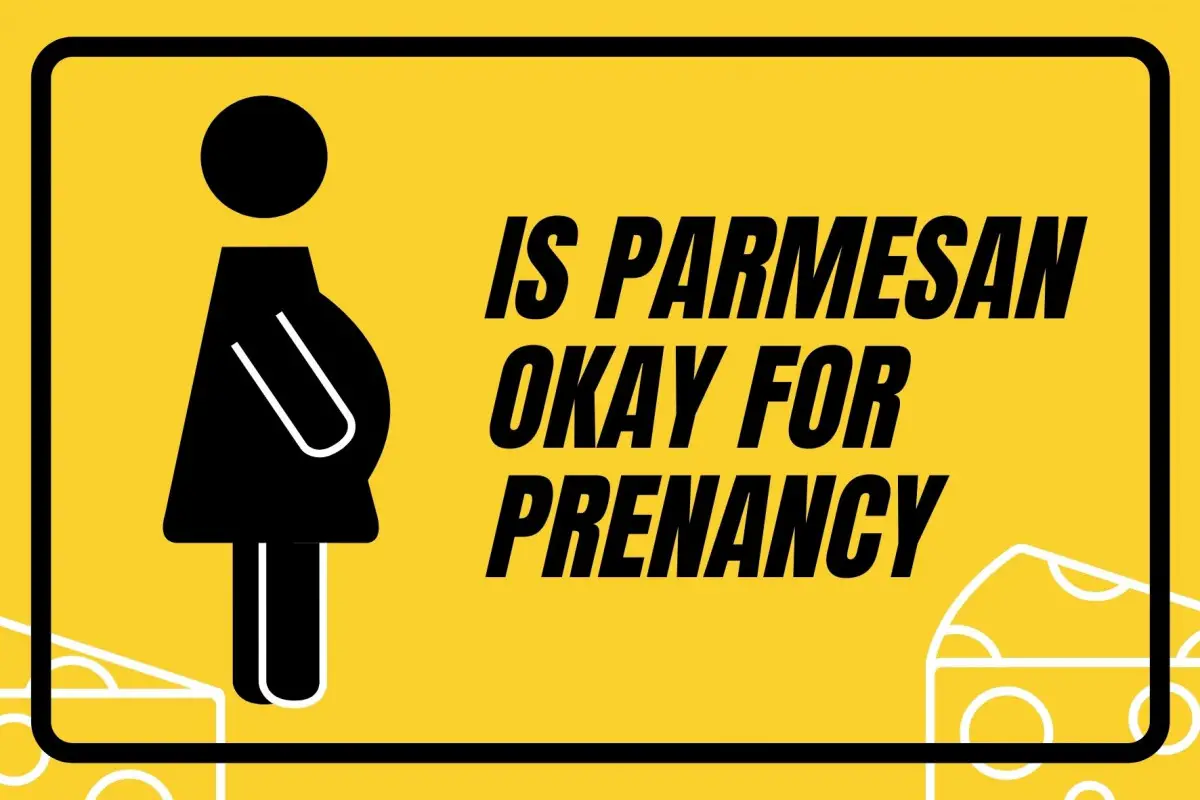Last Updated on January 8, 2023 by Aaron
When it comes to eating parmesan cheese while pregnant, the answer depends on whether it is pasteurized or unpasteurized.
Pasteurized parmesan cheese is safe to eat when pregnant, as the heat treatment kills any harmful bacteria that may be present in the cheese. Unpasteurized parmesan cheese carries a risk as it has not been heated, leading to a higher chance of containing listeria and other foodborne bacteria.
By default, nearly all parmesan cheese made in the United States is pasteurized, so it is generally safe to eat while pregnant that includes popular brands like Kraft and Sargento. If it’s labeled “Parmigiano Reggiano” — it is an Italian imported parmesan cheese that can only be produced with unpasteurized milk otherwise it cannot be labeled as such. For example, the Kirkland Parmigiano Reggiano. Read our further discussion on Parmesan vs. Parmigiano Reggiano.
Table of Contents
However, you may run into farmer’s market or specialty cheese stores that are more likely to sell unpasteurized parmesan cheese. Raw milk cheese is legal in some states, learn more. Belgioioso is using unpasteurized milk for their parmesan. So, make sure to check the ingredients on the packaging that says “pasteurized milk”.
Safety: Eating Aged Parmesan Cheese when Pregnant?
On top of pasteurization, parmesan is an aged cheese. In the US, all parmesan has to be cured for a minimum of 10 months, while Parmigiano Reggiano must be aged for at least 12 months. The lengthy aging process and low moisture content create an environment where harmful bacteria cannot survive, so even unpasteurized parmesan cheese can still be safe to eat.
A study from the University of Wisconsin-Madison has reported that listeria was not found in unpasteurized parmesan cheese after 4 months (16 weeks) of ripening, suggesting that the cheese is not a favorable medium for the bacteria (1). A few other studies also showed a similar result.
However, contamination can happen at any stage of the food production or handling process, so there is still a risk of contamination even with aged parmesan. A 2011 Canada news report stated that listeria was found in a batch of grated parmesan cheese by Arla Foods, prompting an extensive recall.

Also, it’s worth noting that listeria can’t survive above 165ºF (74ºC). So, if you consume parmesan cheese in a hot dish (such as casseroles and pastas) or turn it into crisps, the risk of infection is significantly reduced. Never wasted the parmesan rind too, read more.
FDA on Parmesan Cheese & Report
According to the U.S. Food and Drug Administration (FDA) website, hard cheeses including cheddar and parmesan are considered to not support the growth of listeria.
In an FDA summary report of Raw Milk Cheese Aged 60 Days, among the 301 samples of imported hard cheese, the presence of Salmonella was found in one sample. For domestic hard cheeses, there is one sample detected with Listeria contamination out of 220 samples. The report, however, did not disclose the particular type of hard cheese used in the study.
While the chance of contamination is fairly low, it can still pose a small risk especially to vulnerable groups such as pregnant women and the elderly. Therefore, it is still best to stick with pasteurized parmesan cheese if you are pregnant.
Parmesan Brands for Pregnancy
Most mainstream grocery stores carry pasteurized parmesan cheese. Here are some popular parmesan cheese brands that you can find in supermarkets, which have been confirmed to be using pasteurized milk:
- Kraft
- Sargento
- Great Value
- Organic Valley
- Sartori
- Milano’s
- Trader Joe’s
- Andrew & Everett
- Cello
- 4C
- Stella
- Frigo
- 365 Whole Foods Market
Important Tips
Regular and aged parmesan cheese are both safe to eat when pregnant as long as it is made with pasteurized milk.
In addition to pasteurization status, the amount of parmesan cheese consumed when pregnant can also be a factor. Eating small amounts of pasteurized parmesan cheese is generally considered safe, but it is best to limit intake to avoid consuming too much salt and calories.
If eaten in excess, parmesan cheese may cause an increase in blood pressure and weight gain during pregnancy. If you have babies, is parmesan safe for them? — read this discussion post.
On the other hand, eating parmesan has many benefits for pregnancy too, such as being a good source of calcium and protein, as well as containing probiotics which can help to boost immunity.

